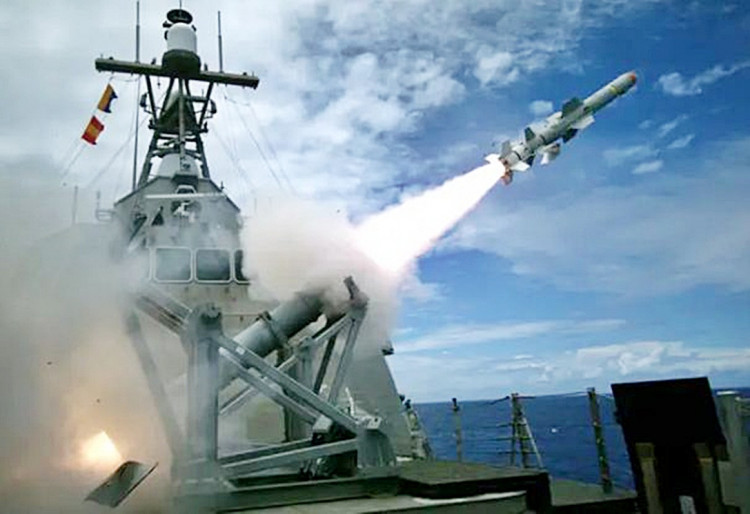Taiwan is still in talks with the United States to acquire Tomahawk cruise missiles with a range of 1,000 kilometers, Harpoon anti-ship missiles that can reach 280 kilometers and powerful naval mines to sink enemy warships. Taiwan will use these advanced weapons to reinforce its shore defenses against an amphibious invasion by China across the 180 kilometer-wide Taiwan Strait.
Hsiao Bi-khim, Taiwan's de facto ambassador to the United States, said her country has begun negotiations to acquire a range of "hardware capabilities" to bolster the power of the Taiwan military to quickly defeat a Chinese amphibious and aerial invasion.
In 2015, the government of former president Ma Ying-jeou published a study predicting a Chinese invasion on or before 2020. That report helped accelerate Taiwan's plan to heavily strengthen its conventional military and asymmetric capabilities to defeat this invasion.
Hsiao said that among the U.S. hardware Taiwan wants are cruise missiles, underwater naval mines and other capabilities "to deter an amphibious landing, or immediate attack."
She told an audience at the Hudson Institute in Washington DC that the U.S. cruise missiles will be deployed for coastal defense alongside her country's indigenous Hsiung Feng hypersonic anti-ship missiles, which include an extended range version that can carry a nuclear warhead and is capable of hitting targets 300 kilometers away.
In May, Taiwan announced plans to buy an unknown number of land-launched Harpoons from Boeing Defense, Space & Security. This version is likely the RGM-84 that normally arms surface warships of the U.S. Navy.
Hsiao said Taiwan faces "an existential survival issue" on account of China's relentless territorial and sovereignty claims over the country. China considers Taiwan a renegade province and vows to reunite with the island, by force if necessary.
Apart from bolstering the country's conventional military power, the government of current President Tsai Ing-wen continues to expand the asymmetric combat capabilities of the air force.
"What we mean by asymmetric capabilities is cost effective, but lethal enough to become deterrence - to make any consideration of an invasion very painful," according to Hsiao.
Tsai had previously said accelerating the development of Taiwan's asymmetric defense capabilities is her top priority.
Hsiao also said Taiwan is strengthening defenses of the islands it controls in the South China Sea, including the Pratas Islands and the Spratly Islands. China claims to own 80 percent of the South China Sea.
"For Taiwan, our priority in our survival involves building up the defense of Taiwan itself, but also of the islands that Taiwan currently controls in the South China Sea," said Hsiao.






